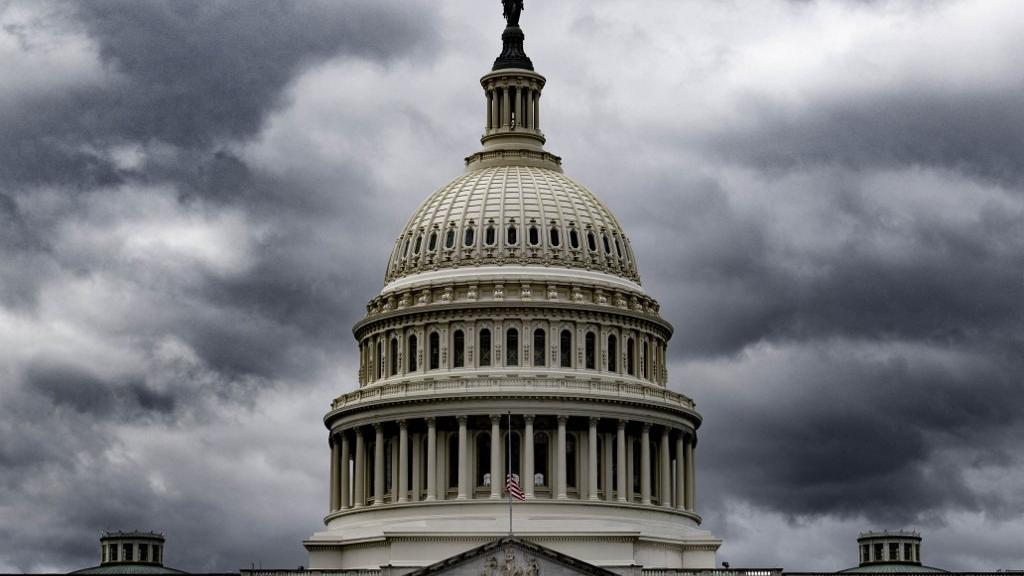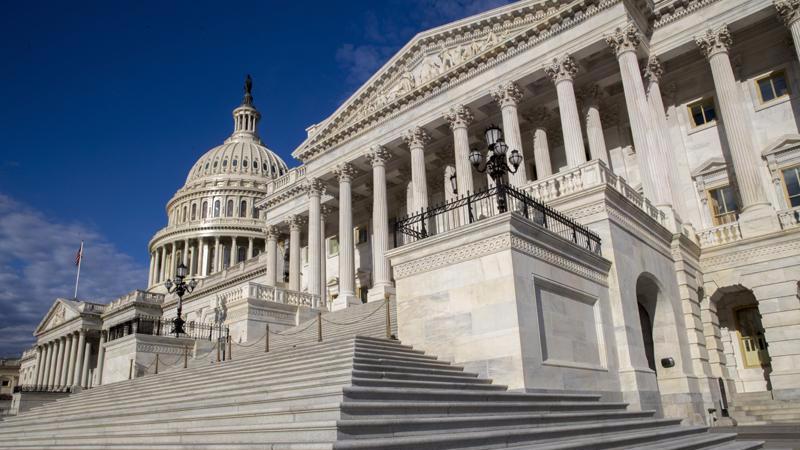 Storm clouds pass over the US Capitol in Washington, DC, on Jan 23, 2023. (PHOTO / AFP)
Storm clouds pass over the US Capitol in Washington, DC, on Jan 23, 2023. (PHOTO / AFP)
WASHINGTON - US congressional negotiators on Sunday unveiled a bill to fund key parts of the government through the rest of the fiscal year that began in October, as lawmakers faced yet another threat of a partial shutdown if they fail to act by Friday.
The legislation sets a discretionary spending level of $1.66 trillion for fiscal 2024, a spokesman for Democratic Senate Majority Leader Chuck Schumer said. It fills in the details of an agreement that Schumer and Republican House of Representatives Speaker Mike Johnson set in early January.
Lawmakers last week passed the fourth stopgap measure since Oct 1 to keep the government funded, and set themselves two quick deadlines to act, with funding for a part of the government including the Department of Transportation and the Food and Drug Administration running out on March 8 and most other federal agencies partially shutting down on March 22.
The bill "maintains the aggressive investments Democrats secured for American families, American workers, and America’s national defense," Senate Majority Leader Chuck Schumer said in a statement
The 1,050-page bill lays out in detail funding for six of the dozen segments of the government that Congress is charged with allocating money for, with the next six due by later in the month.
The bill "maintains the aggressive investments Democrats secured for American families, American workers, and America’s national defense," Senate Majority Leader Chuck Schumer said in a statement.
Johnson in a statement said: "House Republicans secured key conservative policy victories, rejected left-wing proposals, and imposed sharp cuts to agencies and programs critical to the President Biden’s agenda."
ALSO READ: Jordan, US conduct joint aid airdrops to Gaza
While the top leaders of Congress have agreed on the deal, it still faces some challenges, notably opposition by hardline Republicans in the House, who have repeatedly called for sharp spending cuts and typically do not vote for spending bills.
That hardline energy, which led to the ouster of Johnson's predecessor Kevin McCarthy, has also gained steam in the traditionally more staid Senate, leading to top Republican Mitch McConnell's decision last week to step down from his leadership role at the end of this year.
 In this photo taken June 27, 2017, the US Senate is seen on Capitol Hill in Washington. (PHOTO / AP)
In this photo taken June 27, 2017, the US Senate is seen on Capitol Hill in Washington. (PHOTO / AP)
House Republicans were touting the bill as a win, although with a deeply divided caucus they had little negotiating power. The bill includes a 10 percent cut in funding to the Environmental Protection Agency, 7 percent to the Bureau of Alcohol, Tobacco and Firearms and 6 percent to the FBI.
Schumer meanwhile emphasized that the bill fully funds a health program for low-income families, "makes critical investments in our infrastructure, and strengthens programs that benefit services for our veterans."
ALSO READ: US defense chief faces Congress grilling over health secrecy
The ongoing brinkmanship over the nation's $34 trillion debt has unnerved credit agencies. Moody's downgraded its financial outlook on the United States from "stable" to "negative" in November, citing large fiscal deficits and increasing political polarization, though Fitch on Friday affirmed a "stable" outlook.
The House will have to vote on the bill first before the Senate can take up the package before Friday, Schumer said. The House is due to return to Washington on Tuesday.
The draft also provides for Congressional approval of new 20-year funding packages, worth of total of $7.1 billion, for three strategic US-allied Pacific Islands nations, which were agreed last year but had been held up by the budget wrangling.
Under the so-called Compacts of Free Association, Washington provides economic assistance to the Federated States of Micronesia, the Marshall Islands and Palau, while gaining exclusive military access to strategic swaths of the Pacific coveted by its strategic rival China.
The leaders of the COFA states have been increasingly anxious about the US congressional budget impasse and warned last month that China is actively seeking to shift their allegiances, including over Taiwan.



